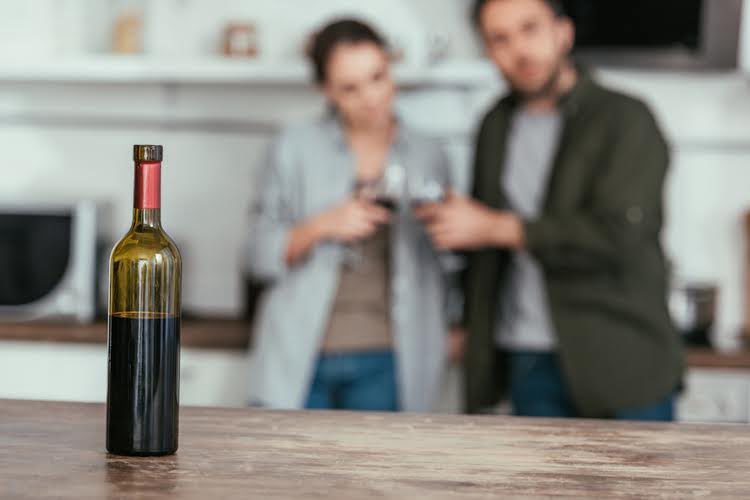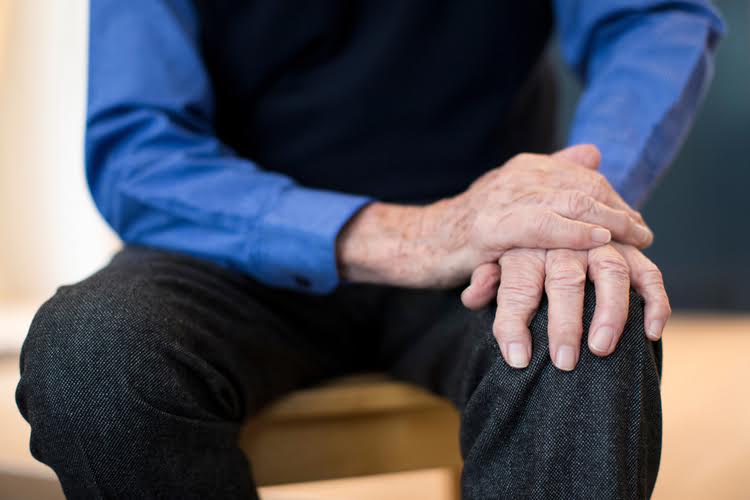Content
Some changes need to be made to fit a new way of living. In some cases, this can mean changing your social group and spending time with different people. A dry drunk is someone who decides to get sober by going “cold turkey.” This is someone who quits drinking without the help of Alcoholics Anonymous, rehab centers, nurses or friends. Many people also refer to a dry drunk as someone is “white knuckling” their way to recovery. This old advice can be helpful in this scenario, but it may not mean what you think. For example, many people drink because they love to dance but feel self-conscious dancing in front of a room full of people while sober. Push yourself to do the things you have never done sober and pretend you have the courage and confidence you once believed you had while you were drunk.
- At most casual drinking centered events, people aren’t generally getting hammered.
- Content is fact checked after it has been edited and before publication.
- Lean on close friends and family for support, even if your relationships aren’t what they used to be.
- Recovering from alcohol misuse when your family still drinks can make sobriety more challenging.
- And stay in touch with your sponsor and call them if you’re feeling anxious or uncomfortable.
Caring for your mental health and a substance abuse disorder at the same time might mean going to a mental health treatment center for help with staying sober. It’s important to reach out to a health care professional and a substance abuse expert for help finding the type of mental health treatment that’s right for you. Among recovering individuals themselves, in order to reduce risks, some choose only to attend sober parties or events. In some instances, family and friends may choose to hold their parties without alcohol, or at least downplay the central role that drinking might take.
Sober Alcoholics
Are you ready to quit drinking or cut down to healthier levels? These tips can help you get started on the road to recovery. If you don’t drink, but you can still have fun while you’re out, most people will be a lot more accepting of your being sober. It’s just that many drinkers have had the experience of having a non-drinker around, and they seemed moody and didn’t want to do anything. Everyone was sure they would have loosened up if they just had a beer or two. If you’re not going to drink, still do your best to be in the mix.
- I feel ready to deal with reality on my own and with support from family.
- I think that even when I don’t think it is bothering me in the moment to be around people who are drinking heavily, it kind of chips away at my commitment to sobriety over time.
- To this day, we have no idea why he was so mad.
- Giving yourself something to do with your hands is a helpful deterrent for habitual sipping.
- It also helps to restore the body’s ability to get alcohol out of the system.
10 Ways To Help An Alcoholic Family MemberEven though things may seem helpless, they aren’t. There are many ways that you can help an alcoholic family member. If you’re about to go out, here’s how to avoid a hangover. If you’re already miserable, here’s how to get rid of hangover. Sean also adds that sober hangouts are better when you don’t make a big deal of the fact that you are doing it on purpose.
What is Dry Drunk Syndrome?
David Susman, PhD is a licensed clinical psychologist with experience providing treatment to individuals with mental illness and substance use concerns. Verywell Mind articles are reviewed by board-certified physicians and mental healthcare professionals. Medical Reviewers confirm the content is thorough and accurate, reflecting the latest evidence-based research.

If you’re in early recovery, you’ll want to stay away from any situation where alcohol or drugs are involved for some time. These environments can trigger cravings and put you at risk of relapse. Being sober doesn’t have to mean giving up your social life, yet managing sobriety in a social setting can be a bit of a challenge.
Why Do People With Anxiety Love Halloween?
Normally I wouldn’t mind—I mean, my conversations are littered with expletives—but when it’s two in the morning, and I’m sober and tired, it wears thin quick. I used to have to anticipate embarrassment in front of my boss or friends. I used to have to anticipate losing my purse or belongings or saying or doing something I didn’t mean to say or do. Social settings where you’re the only sober person are incredible reminders of why you’re sober. It won’t be long before you see a drunk person doing something silly or stupid and be glad that it isn’t you. Mixing different types of alcoholic drinks can rapidly bring up BAC levels and make a person feel and appear intoxicated much more quickly than if they stick to one kind only. However, this is more likely due to how mixing drinks may cause a person to consume a larger amount of alcohol in a short period of time.
Can a sober person be with someone who drinks?
There's no instruction manual when it comes to being sober and having a relationship with someone who still drinks. The reality is that the dynamic in such a situation will be different for everyone. You just have to take it as it comes and be patient in the learning process.
They also like doing certain things for longer than sober people would. When you’re sober, sitting around and talking can make you feel a little restless after a while. When you’re having drinks you’ll happily do it all night. If you like dancing, you’ll do it for hours when you’ve got some alcohol in you.
The Power of Mindfulness in Addiction Recovery
Treatment should address more than just your alcohol abuse. Addiction affects your whole life, including your relationships, career, health, and psychological well-being. Treatment success depends on examining the way alcohol abuse has impacted you and developing a new way of living. There’s no magic bullet or single treatment that works for everyone. Everyone’s needs are different, so it’s important that you find a program that feels right to you. Any alcohol addiction treatment program should be customized to your unique problems and situation.

I am starting to get to place where I have a good time hanging out with friends who are drinking even if I am not. This is a big deal for me because before I quit I genuinely did not know if I could have fun in social situations without alcohol. Early recovery can be such a precarious and emotionally strenuous time. Addiction specialists https://ecosoberhouse.com/ recommend that those who have recently completed inpatient treatment transfer directly into a sober living environment. Sober living houses offer newly sober men and women the opportunity to adjust slowly to drug and alcohol-free living. Living with drinkers is not a good idea for people that have recently become sober.
Connect with a licensed therapist from BetterHelp for online addiction and mental health counseling. These things aren’t really at all surprising, when you think about them. It really does speak to the fact that you can’t just cut out the drinking for yourself and keep hanging around the same people, places and things and expect to have any kind of good time. When I am around people who are overdoing it, that’s a little different. Early on in sobriety, I found it very disturbing. The shorter attention span, the glassy eyes, the slowness all bugged me. Now, a few years into this, I find it more funny when I see it.
How do you know if someone is using you as a crutch?
- The conversation is always about them.
- They always let you pick up the check.
- You always have to come to their rescue.
- They never say thank you.
- They're always asking for favors.
- You start to resent them.
- Your emotional needs are never considered, let alone met.
For example, try a nature activity, engage in an exercise class or sport, or join a class to learn a hobby. After recovering from alcoholism and becoming sober, the goal shifts to maintaining recovery and avoiding relapse. Being around friends who drink is one of the challenges and triggers you might face in everyday life that could lead back to alcoholism and addiction. Nonetheless, it’s possible for you to maintain your sobriety while continuing friendships with people who drink. While getting sober is an important first step, it is only the beginning of your recovery from alcohol addiction or heavy drinking. For example, if people at work invite you to go out to the grab a drink, it can help to have a pre-scripted response ready. You might call someone after you see a family member that makes you feel like a child again, or engage in a healthy activity or hobby if you run into someone from your days of drug abuse.
Build a Support Network
Dry drunkenness is connected to mental illness. This being sober around drinkers is why it is important to treat the whole person.

